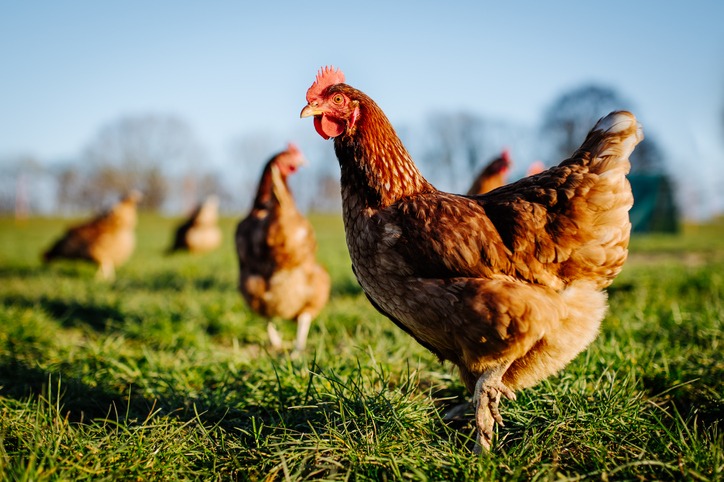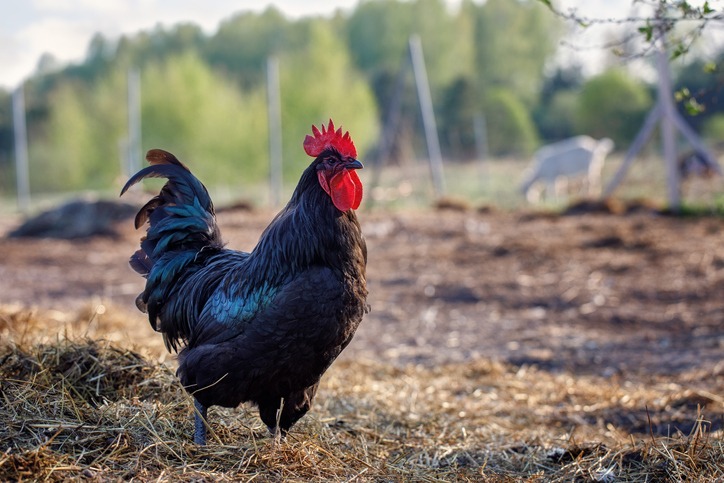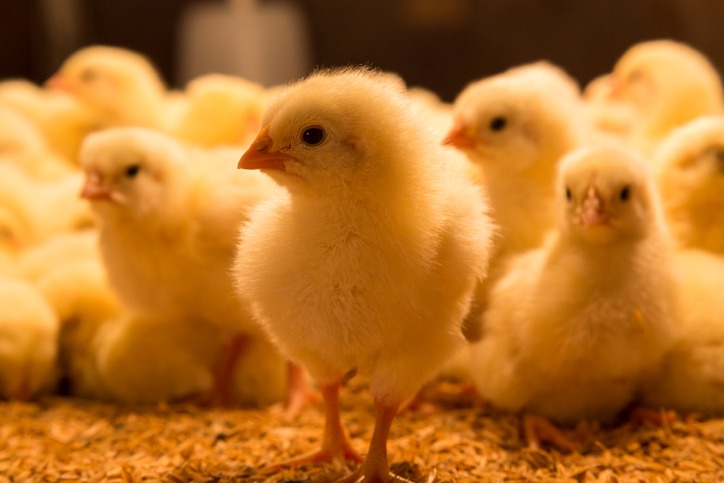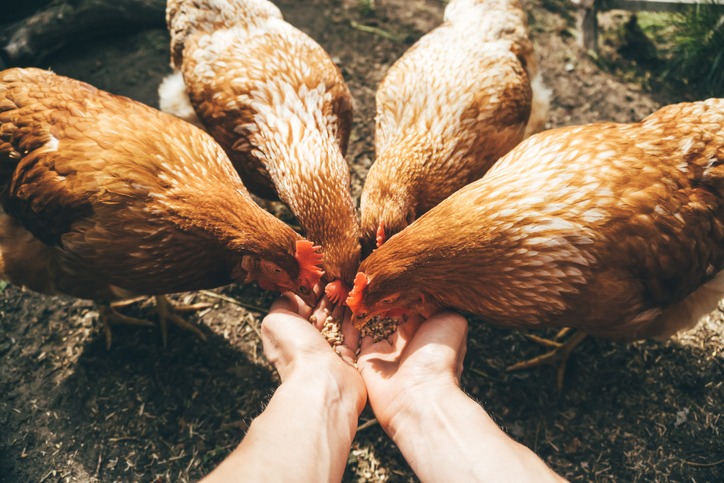If your chicken suddenly goes from producing an egg every day to just one to two a week, or even no eggs at all – you may start to worry, especially if you depend on these eggs for your business. The thing is, chickens, like any animal, have natural biological rhythms that dictate how and when they will reproduce. During the fall, chickens may take a break from laying eggs due to several factors that can trigger their bodies to slow down in reproducing
How To Make Chicken Lay More Eggs?
Looking for ways how to make chickens lay more eggs? Here’s how to help your chickens do that:
1. Select the right chicken breed.
It’s better to start the process right by choosing the right chicken breed. If you have low-performing chickens, you can add new ones of the right breed to increase your egg production.
Chickens, like other animals, come in different breeds, and each one comes with unique characteristics. Some are well-known for laying only a few eggs a month, while some lay eggs every day. If you can, always consider choosing the breed that lays eggs almost daily.
Also, some breeds are more likely to go broody more often than others. These kinds of chickens lay fewer eggs, and sometimes, their broodiness lasts several months, hurting your egg production.
These are the top, egg-laying chicken breeds to consider:
- Rhode Island Red
- Leghorn
- Australorp
- Production Red
- Plymouth Rock
- Golden Comet
- Sussex
- Ancona
- Barnevelder
- Hamburg
2. Assist your chickens during molting.
Chickens go through molting. It is a process of losing feathers and growing them back. It’s driven by season and usually occurs in the fall when the amount of sunlight they receive decreases. For chickens, fall means time to prepare for winter, which needs quality feathers to protect themselves from the weather. Hens going through molting typically stop laying eggs and redirect their energy to regrowing feathers and building up their nutrient reserves.
While the process of molting can be frustrating for chicken keepers, there’s not a lot you can do to get your chickens laying again, except to make them more comfortable and help them go through molting as quickly as possible. To do this, you must:
- Add more protein to their diets. Protein will help them grow new feathers more quickly, which means they can go back to laying eggs sooner. Switch to a high-protein chicken feed or give them dried mealworms and grubs.
- Provide a dust bath for your chickens to help them dispose of old feathers fast while they roll around in the dirt.
3. Add more light inside the coop.
The laying cycle of hens is directly affected by sunlight. Chickens usually lay eggs consistently when there are 14 or more hours of light during the day. This is why egg production takes a nosedive during the fall and winter.
To help your chickens lay more eggs despite the season, add supplemental light inside their coop. This technique will likely force the hens to use their egg reserves more quickly, which means they will lay for a shorter time.
This practice, however, is highly controversial in the chicken-keeping community. Many believe that hens deserve to take a break from laying during the winter to allow them to follow their natural biological rhythms.
4. Learn how to deal with broodiness.
Broodiness is another reason why hens stop laying their eggs. When a hen is broody, it means that her maternal instincts have kicked in – she would rather sit on the eggs to let them hatch instead of being in her usual active, curious mood. Broody hens may sit on the nest to incubate the eggs for 20 or more hours a day. This means no eggs for you because the mommy chickens want to have chick babies.
Some hens may go broody several times a year, resulting in four to six months of no eggs.
If your goal is to produce a lot of eggs, not raise more chickens, avoid the broody chicken breeds such as:
- Brahmas
- Sussex
- Cochins
- Chantecler
- Silkies
- Orpington
- Cubalaya
- Dorking
- Dominique
- Marans
But if you do have broody hens in your flock, here are some ways to break their broodiness and get them back to laying eggs. Keep note of the essentials of brooding as well:
- Remove the nest. Broody hens are bound to their habits and will return to the same nest over and over. Try taking that nest away or block access to it so she would lose the desire to sit on her eggs.
- Remove the hen. Another popular option is to remove the chicken from the nest and set her out to free-range for the day. Block access to the coop or put her in another area until she stops brooding. Placing the hens in a well-lit, cooler area with no bedding or nests gets them out of their nesting instinct.
- Let her hatch. On the other hand, allowing your hen to hatch her eggs and raise chicks will help you get more egg-laying chickens to your flock. This is a good option if you’re looking for a longer-term solution to increasing your egg production.
5. Upgrade your chicken feed.
Sometimes, what your chicken needs so she can lay more eggs is better nutrition. Dried mealworms are a great supplement to improve your hen’s health. They need a careful balance of nutrition to produce high-quality eggs regularly.
If your chickens are not laying eggs as much as you’d like, it may be time to look into their feed. You may want to consider getting a premium feed for them and supplement their diet with healthy treats like garden weeds, kitchen scraps, and supplements.
6. Monitor the health of your chickens.
Check the health of your hens regularly. One of the biggest reasons why a chicken that has laid eggs pretty frequently before suddenly decreases her egg production is that she isn’t healthy enough. Sickly hens will stop laying hens for a while as they wait for their bodies to heal.
Remember that healthy chickens will have clean, orderly feathers, red combs and wattles, bright eyes, and lots of energy.
Your chicken might be sick if they show these symptoms:
- Droopy tail
- Limping
- Excessive scratching and preening
- Hiding/isolating themselves
- Bald patches or missing feathers
- Dull feathers
Sick hens must be isolated and be hydrated. You may need to give them vitamins when necessary.
7. Reduce their stress.
Stress plays a big role in egg production. A stressed chicken won’t lay eggs. Reducing the amount of stress in the hens will greatly impact the quality and quantity of the eggs they lay. The common stressors among hens include:
- Predators lurking around or in the coop
- Parasites like mites, lice, and fleas torment the chickens
- New chickens added to the flock
- Moving into a new coop or rearranging the coop
- Nearby cats and dogs stalking the hens
- Chickens bullying one another
- Aggressiveness among the flock
Conclusion
Helping your chicken lay eggs may seem like a difficult task but it isn’t like that always. There are plenty of ways to encourage healthy egg production in the chicken. We recommend that you try out the two products we have recommended above. This is because they contain essential vitamins that will encourage healthy egg production. Don’t worry! Both of them are completely safe. You can choose either of the two based on the price and volume you require.
Besides, here are a few extra tips to consider – Tips for Successfully Raising Chickens




